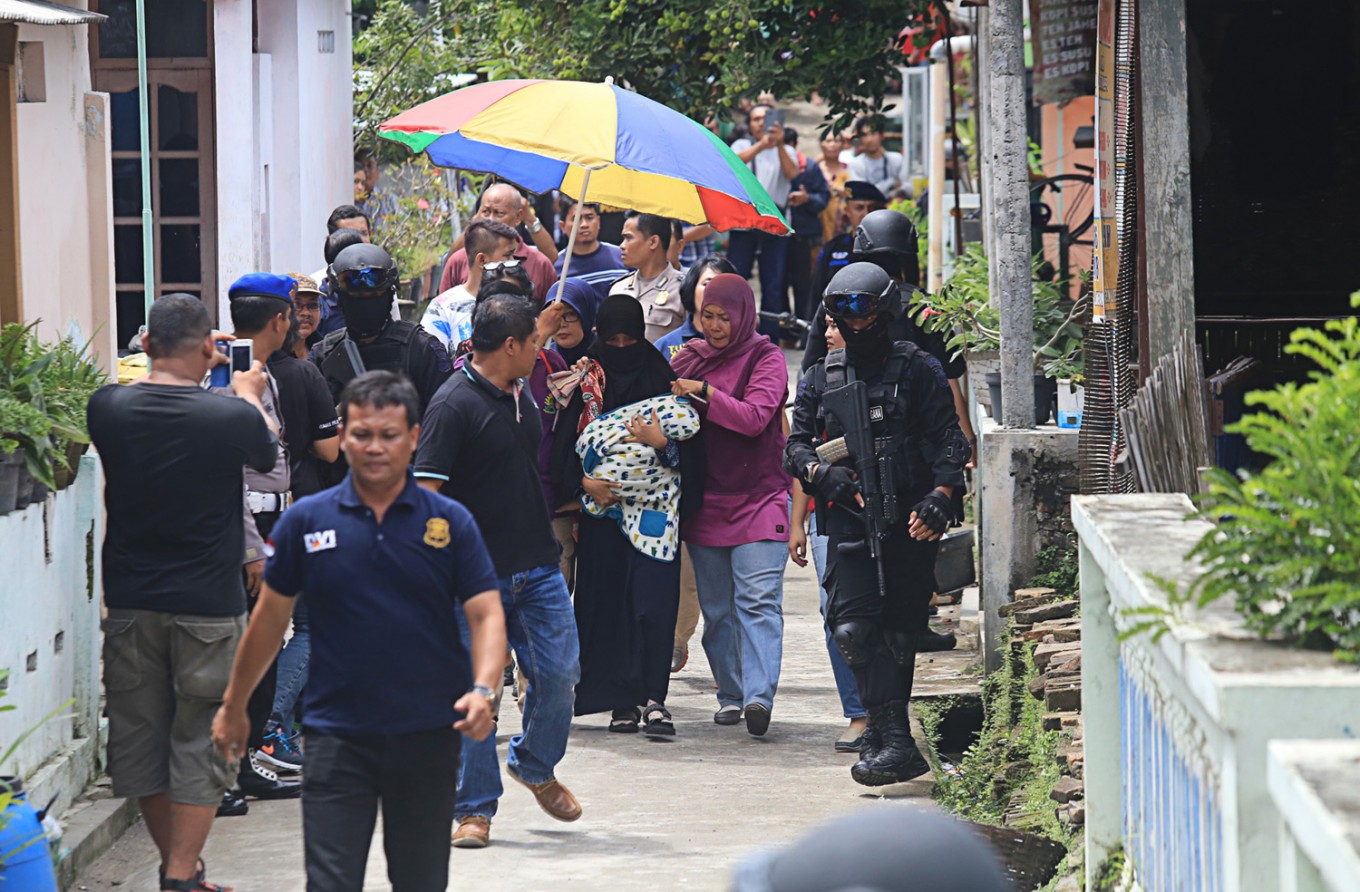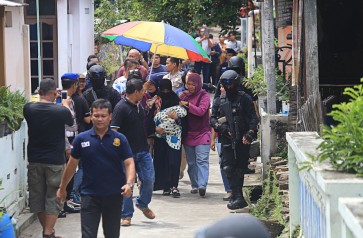Popular Reads
Top Results
Can't find what you're looking for?
View all search resultsPopular Reads
Top Results
Can't find what you're looking for?
View all search resultsDeradicalization must involve women
Finally, women are historians and storytellers who pass on grievances and memories, especially to the next generation. They entrench hate and enmity in their children — shaping the mindset of “us versus them” in their children, leading them to identify victims for their grievances. Widows may also pass on the pride of having a husband who died as martyrs.
Change text size
Gift Premium Articles
to Anyone
 Tight escort – Personnel of the National Police’s Densus 88 counterterrorism squad pick up Rinda (center), 24, the wife of terrorist suspect Nur Solihin from their house in Kampung Griyan, Laweyan, Surakarta, Central Java, on Sunday. She was taken into custody following the arrest of Nur Solihin in Jakarta. (JP/Ganug Nugroho Adi)
Tight escort – Personnel of the National Police’s Densus 88 counterterrorism squad pick up Rinda (center), 24, the wife of terrorist suspect Nur Solihin from their house in Kampung Griyan, Laweyan, Surakarta, Central Java, on Sunday. She was taken into custody following the arrest of Nur Solihin in Jakarta. (JP/Ganug Nugroho Adi)
T
he rising trend of women’s involvement in terrorist networks demonstrates their vital role in increasing the strategic, operational, and tactical effectiveness in supporting terrorism.
Besides the role of women in logistics, fundraising and as combatants, we must also recognize the importance of women in recruitment — which is significant in ensuring their survival and continuity. All terrorist networks need to establish overarching mechanisms to recruit new members, and that includes women.
The recent arrest of Titin Sugiarti shows women play an important role in the recruitment process. Sugiarti recruited Dian Yuli Novi — a perpetrator of a foiled suicide bombing attempt at the State Palace in December. Novi is the wife of Nur Solihin, the leader of a Surakarta-based terror cell who also plotted the attack at the palace. Yet, Novi was not radicalized by her husband but rather by Sugiarti whom she had met long before.
The researchers R. Kim Cragin and Sara A. Daly in their 2009 book, Women as Terrorists: Mothers, Recruiters and Martyrs identify women’s roles in aiding recruitment of terrorist networks as facilitators, propagandists, and as historians. These ways are still relevant in identifying the current practice of groups affiliated with the Islamic State (IS) group in Indonesia.
As a facilitator Sugiarti stands out as the main recruiter of Novi and perhaps others as potential female suicide bombers, which is strategic as women tend to be less conspicuous than men. Due to their rarity, women suicide bombers usually latch media attention and in turn instill fear — the main objective of terrorists.
Women also recruit men who have kin relationships with them. Dwi Djoko Wiwoho, a civil servant who served as director of the Indonesia Investment Coordinating Board’s licensing office in Batam, left for Syria in 2015 to join IS. It is believed he has been radicalized by his wife, Ratna Nirmala.
According to his colleagues Wiwoho was not a religious and fanatic person. He skipped prayers and often accompanied his friends from Jakarta to local night clubs. On the other hand, Nirmala had frequently visited Malaysia because of her affiliation with an extremist group there.

















